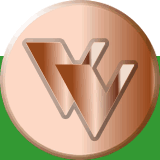
Proteins are essential for life, and have a wide range of functions in the body. Some important proteins in the body include collagen (found in connective and structural tissue such as bones and ligaments), immunoglobulins (a part of the immune system) keratin (found in hair and nails). Proteins are made up of building blocks called amino acids, and proteins that we eat are broken down into these builing blocks to be recombined inthe body to produce the proteins we need. Some amino acids can be made in the body (non-essential amino acids); others cannot be made, and therefore must be taken in as part of the diet (essential amino acids).
Vegans obtain their protein from a wide variety of sources. Rich sources include beans, lentils, nuts and seeds. Tofu, made from soya beans, is a useful source, along with other soya products, such as textured vegetable protein, and tempeh (these may often be used as 'meat substitutes' in cooking). Significant amounts of protein may also be obtained from cereals. Although most vegetables contain relatively small amounts of protein, they can make an important contribution to a vegan's protein intake, due to the large quantities consumed.
In addition to all the vegan sources, vegetarian sources of protein extends to eggs and cheese. Vegetarians may also eat Quorn, a mushroom protein bound with egg (see our 'meat substitutes' section for more information).
Please remember, the nutritional information on vegan Volumes' pages are a general guide only. if you are in doubt about your health or diet, consult your doctor or a dietitian.
These pages were last updated 22nd May 2010
Copyright © 2004-2010 Vegan Volumes. All rights reserved. Notice. Privacy
Policy.





